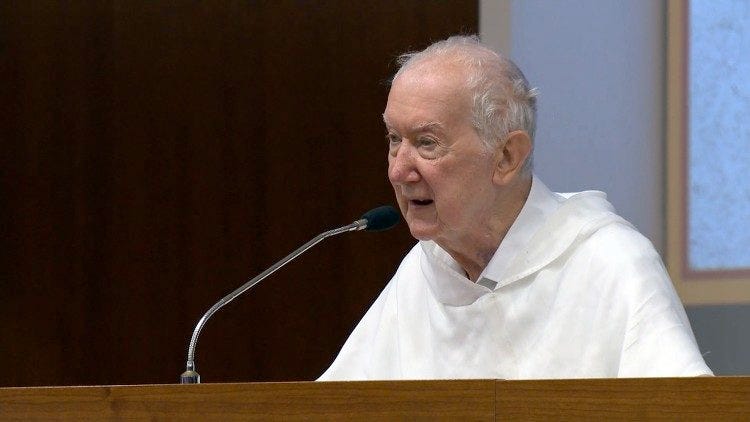Cardinal-elect Timothy Radcliffe, OP, said Wednesday that his recent comments on the African Church did not intend to suggest that stances taken by the African bishops “were influenced by financial considerations.”
In a statement released by the Vatican press office Oct. 23, Radcliffe said that his comments had been “acknowledging only that the Catholic Church in Africa is under tremendous pressure from other religions and churches which are well funded by outside sources.”
Earlier this month, Radcliffe published a column was carried in the Italian edition of L’Osservatore Romano, a newspaper published by the Vatican’s Dicastery for Communications.
In that column, he discussed Fiducia supplicans, a document issued in December 2023 by the Dicastery for the Doctrine of the Faith permitting non-liturgical blessings for homosexual persons in same-sex couples.
The document was widely opposed by the African bishops, and Pope Francis eventually agreed that it would not be considered normative in Africa.
In his column, Radcliffe discussed the “firm rejection” of Fiducia supplicans by the African bishops.
“African bishops are under intense pressure from Evangelicals, with American money; from Russian Orthodox, with Russian money; and from Muslims, with money from the rich Gulf countries,” he wrote.
At a Vatican press conference Tuesday, Cardinal Fridolin Ambongo of Kinshasa was asked by a journalist about Radcliffe claiming foreign money had influenced the African bishops’ opposition to Fiducia supplicans.
Ambongo replied that he and Radcliffe had both discussed “the article,” and that he did not recognize it as being Radcliffe’s authentic views.
“Fr. Radcliffe has never said these things and this does not correspond at all to his personality,” Ambongo said.
Radcliffe’s statement Wednesday clarified that “the article” which he and Ambongo were rejecting as a portrayal of his views was not the L’Osservatore Romano column, as previously reported by The Pillar, but instead a response to that column, published October 17 by writer Phil Lawler in Catholic Culture
In that response, Lawler criticized Radcliffe’s original column for suggesting that it was foreign money rather than a commitment to the Bible driving the African bishops’ opposition to homosexual unions.
“Father Radcliffe would have us believe that the external pressure on Africans culture reflects the financial clout of American Evangelicals and Russian Orthodox,” Lawler wrote. “Is Father Radcliffe asking us to believe that the financial power of the Russian Orthodox Church—in Africa, not a hotbed of Orthodoxy—can rival the influence of Planned Parenthood?”
But Radcliffe said in his statement Wednesday that Lawler had misinterpreted him.
“I never wrote or suggested that positions taken by the Catholic Church in Africa were influenced by financial considerations. I was acknowledging only that the Catholic Church in Africa is under tremendous pressure from other religions and churches which are well funded by outside sources,” he said.
Radcliffe, a Dominican priest and former superior of the Dominican order, was appointed by Pope Francis as a “spiritual assistant” to the synod on synodality, where he has preached retreats and offered spiritual guidance to delegates at several critical moments of the synodal process.
The priest was appointed by Pope Francis to become a cardinal at a Dec. 8 consistory in Rome, though he has been given special permission not to be consecrated a bishop, as is otherwise customary for cardinals.
Radcliffe’s piece was published October 12 by the Vatican’s L’Osservatore Romano under the headline “Lo spirito del Sinodo e l’ecclesiologia dei cappelli.”
“Never before had all the bishops of a continent repudiated a Vatican document,” the priest wrote.
The same text had been previously published in English outlet The Tablet in April with Radcliffe’s byline.
The Tablet’s publication included a note clarifying that the text had been “adapted from a talk given at Stonyhurst College, Clitheroe, on Good Friday.”





